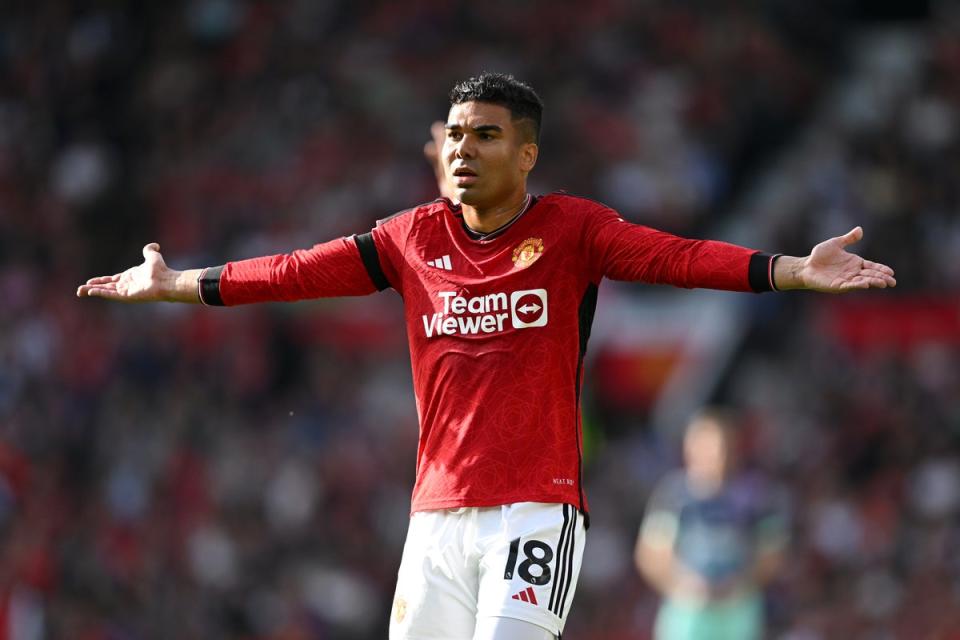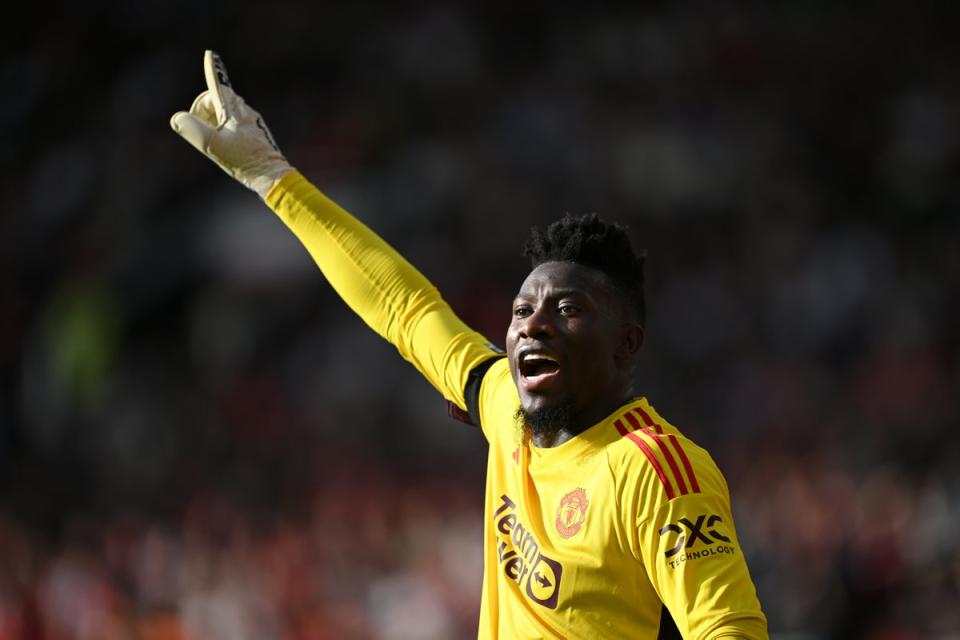What has happened to Casemiro? The Manchester United midfielder exposed, isolated and bypassed

The defenders have got more Premier League assists than the midfielders and the forwards have between them. The defensive midfielders have three times as many league goals as the many forwards have mustered. Welcome to Manchester United, where few things go quite as planned, where Saturday’s spectacular salvage job from a fan who has been on the books for two decades involved a brace from Scott McTominay, not Marcus Rashford. They trailed for an hour against Brentford. It is the sort of scenario in which managers rarely replace their top scorer.
Yet as their leading marksman is another defensive midfielder, Casemiro, that was not the most notable element of his half-time removal. Nor, even, was it Erik ten Hag’s somewhat brutal explanation for introducing Christian Eriksen. “I wanted more football,” the United manager said. “Someone who brings passing and link-up play.”
The Brazilian had brought passing: he passed the ball to Bryan Mbeumo to set Brentford on their way to an opener, a goal for which he arguably made three mistakes. And yet the pertinent part was simply the fact he was taken off. Ten Hag’s talismen are no longer untouchables. Rashford has been taken off in the last three games, each at a point when United needed a goal. And if suggests that neither status nor last season’s excellence can protect them forever, it is also an indication that each ranks among this season’s disappointments.
All of which meant Casemiro’s status as an award winner was revealing of a wider malaise at Old Trafford. He had won September’s player-of-the-month prize with a whopping 70 per cent of the vote. Perhaps a tour de force in the Carabao Cup victory over Crystal Palace, along with some recency bias, helped. Maybe a brace against Bayern Munich did, too, though it came too late to be relevant. Yet it pointed to a lack of alternatives: by Casemiro’s standards, he did not play well in September.
It will be still more damning if he retains the award for October. Casemiro’s two appearances this month have ended early: sent off against Galatasaray, hauled off against Brentford, there were two warning signs. The first came from the officials, the second from the manager. If his red card in the Champions League owed much to Andre Onana, with Casemiro’s desperate slide at Dries Mertens coming after the goalkeeper had coughed up possession, it nevertheless felt symbolic.
Casemiro’s tackling technique means he goes to the ground too often. As he is getting slower, he is likelier to foul. The naked eye suggests he has been exposed, isolated and bypassed too often, in part when Ten Hag’s tactics have left him stranded behind Bruno Fernandes and Mason Mount. The statistics show the supposed ball winner is regaining it less often. In turn, that may mean he is sent off more often.
Casemiro is making fewer interceptions: 0.69 per 90 minutes, compared to 1.43 last season and 2.17 for Real in 2020-21. His 2.91 tackles per 90 minutes is down from 3.77. He is winning fewer than half of his duels, according to Soccerment statistics. To put it another way, the defensive midfielder is not protecting the defence. The goals and assists that he, Scott McTominay and the back four have got are welcome but the defensively minded personnel have failed to do their day job too often. If Onana is the most obvious culprit, he is not the only one.

The intriguing element was that, arguably, Brentford was the first time where Casemiro began in midfield but not as the holding player. With Sofyan Amrabat starting in his preferred position, ending the unsuccessful experiment of deploying the Moroccan at left-back, Casemiro was often found in more advanced areas.
As Ten Hag indicated, Eriksen is more of a playmaker and was then granted those duties instead. Yet as Casemiro’s United career shows, he can be both scorer and creator. He has the talent to contribute as each. Perhaps his future could lie as a constructive presence. Yet he was bought as a destructive one.
His growing immobility provides a concern that this is not just a loss of form or an issue with United’s tactics. There is the opportunity to look for more solidity by pairing Casemiro and Amrabat in front of the back four. But there is the ticking timebomb that came with his transfer.
Real Madrid pensioned Casemiro off, taking £63m for a player in his thirties. He has almost three years left on one of the biggest contracts in United’s history. He would not be the first player to be paid to decline at Old Trafford; perhaps now Ten Hag has signalled to Casemiro that he has to prove he is not a fading force, that his past and his Champions Leagues are no guarantee of a place when Amrabat could play instead. “In football, it is eat or get eaten,” the United manager said. If Casemiro polished off the partnership with McFred, Saturday was one of the finest days of McTominay’s United career, and among the worst of his.
